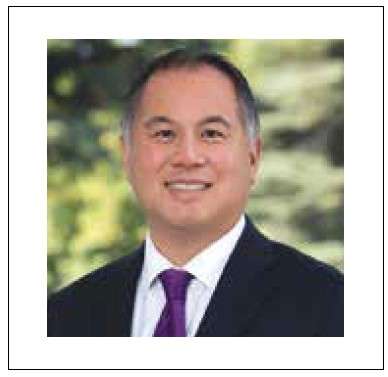
By Assemblymember Phil Ting–
You may have seen that the United States’ Gross Domestic Product was 2.4 percent for the second quarter this year—better than what we considered, as we crafted the 2023–24 state budget that took effect this summer. But this is only one data point to consider when looking at California’s finances. We must look at things more cautiously and assume the next few budgets will likely present some challenges.
As Assembly Budget Chair for the last eight budgets, I’m glad to see that our years of fiscal responsibility have positioned our state well to deal with possible declining revenues. This enables us in the latest spending plan to protect the progress we’ve made in key priority areas, avoid cuts to core programs, and maintain a $38 billion reserve to safeguard against economic uncertainty in California’s new budget.
For the LGBTQ+ community, I’m excited to see that the new state budget will help the Center for Health and Social Justice in San Francisco become a reality with $1.5 million in funding. The vision is to have a cultural institution that will host exhibitions on the history of the HIV/AIDS epidemic, social justice movements, and important modern-day issues. It will also permanently house the AIDS Memorial Quilt, which has grown to more than 50,000 panels, to ensure its conservation and protection for future generations.
On the health front, we continue funding to keep Mpox vaccines available and the AIDS Drug Assistance Program running. The new state budget also addresses inequities in Hepatitis C Virus treatment and services by bolstering outreach, testing, and engagement that focus on underserved Californians. State funds will additionally ensure health plans go through culturally competent training, so that proficient trans-inclusive health care is provided.
And given the national efforts limiting kids’ books and transgender rights, we want to address the unique needs of California’s LGBTQ+ students. We’ve allocated $10 million over the next three years for support centers. By having an adult to talk to and resources on campus, we can address mental health needs that could increase academic outcomes.
Statewide, the budget touches many lives, strengthening programs and services for those who need the most help and investing in a strong future. Highlights include:
We are fortunate that the latest state budget is still improving the lives of Californians. We’ve only been able to do this through smart, responsible actions in years past.
Phil Ting represents the 19th Assembly District, which includes the west side of San Francisco along with the communities of Broadmoor, Colma, and Daly City, as well as part of South San Francisco and San Bruno.
Assemblymembers Phil Ting
Published on August 10, 2023
Recent Comments